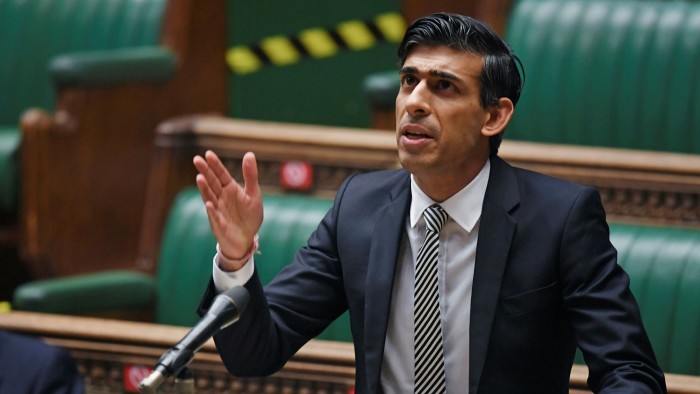Rules for UK’s £2bn Kickstart jobs scheme simplified to clear logjams

Simply sign up to the UK employment myFT Digest -- delivered directly to your inbox.
The UK government is trying to increase take-up of its £2bn Kickstart jobs scheme, after criticism from small businesses forced to delay work placements for young people due to administrative logjams.
The scheme, modelled on a programme that ran after the 2008 recession, is the flagship measure in chancellor Rishi Sunak’s plans to avert mass joblessness due to the coronavirus crisis.
Set to run to the end of 2021, it pays employers to create six-month work placements for those aged 16-24 at risk of long-term unemployment. The aim is to create hundreds of thousands of jobs for the young people hardest hit by the pandemic
But four months after the scheme opened to applications, only 2,000 young people have started placements, according to figures provided by the Department for Work and Pensions. This is partly because the renewed national lockdown has forced some employers to put placements on hold, but also because thousands of applications have been stuck in the pipeline for weeks, say business groups.
The DWP said on Monday that applications for 120,000 placements had now been approved, and it was opening the scheme to direct applications from small employers, scrapping a previous rule under which anyone creating fewer than 30 placements had to apply through an intermediary, or “gateway”.
“We are making it even simpler to get involved,” said Thérèse Coffey, secretary of state for work and pensions.
The Federation for Small Businesses welcomed the change as “positive, and better late than never”, but added that the priority should be “unsticking the blockages”. “The government must scale this, and fast,” said the FSB.
Others warned that allowing small employers to apply directly to the scheme might boost the number of placements to the detriment of quality.
Tony Wilson, director of the Institute for Employment Studies, said gateways not only helped small employers with paperwork, but also ensured the quality of placements as well as giving young people wraparound support and helping them move on to a permanent job. The change of approach from DWP “tilts it towards being a straightforward hiring subsidy”, he said.
Adam Marshall, director-general at the British Chambers of Commerce, said: “We hope that the Department for Work and Pensions will commit to clear the backlog of approvals needed for placements already in the system before processing any new placements, and that they will continue to encourage small business to work with gateways.”
One initial obstacle to small businesses and community organisations trying to create Kickstart placements appears to have been DWP’s use of Spotlight — an automated due-diligence tool developed by the Cabinet Office to screen applications — leading to a high proportion being rejected up front without explanation.
DWP guidance to employers states that the department has “recently improved the assessment process to allow more flexibility when considering applications”.
A spokesperson for the DWP said staff had also been redeployed internally to clear the backlog of applications, and that despite the national lockdown, 33,000 of the 120,000 placements created were now available for candidates to begin immediately.
Comments